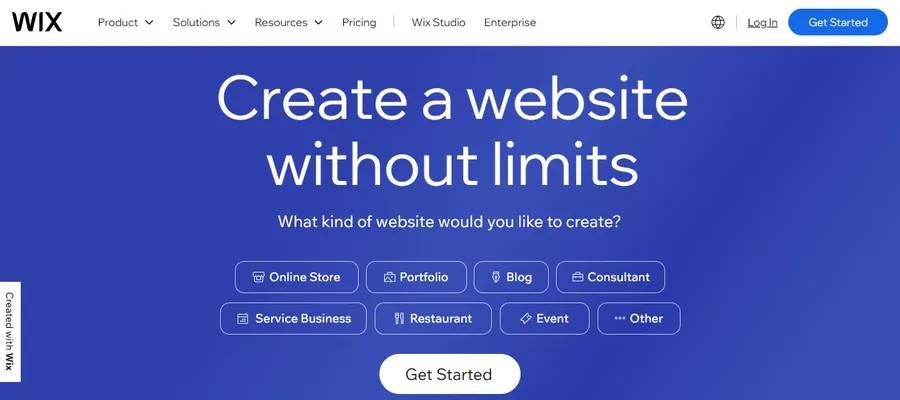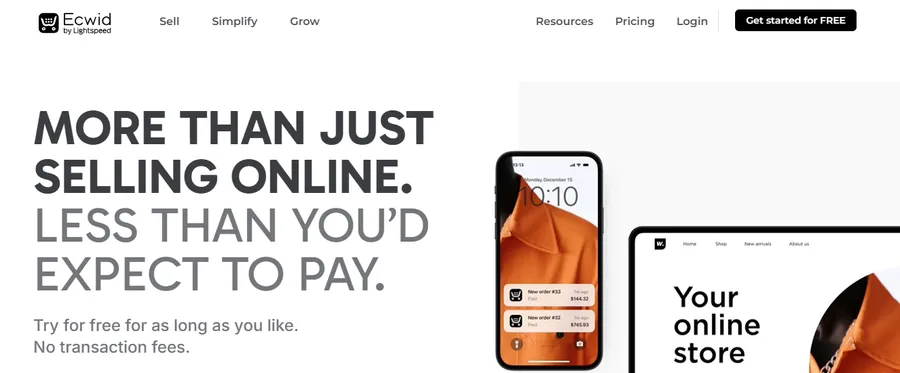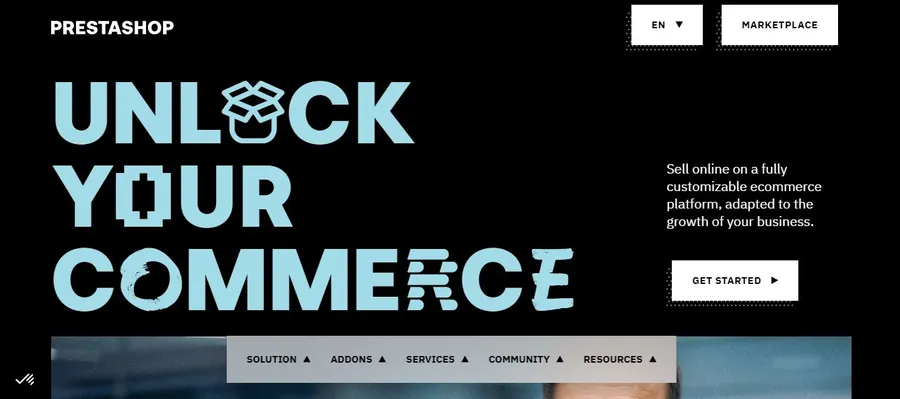8+ Best Shopify Competitors & Alternatives Compared
Shopify has undeniably revolutionized the eCommerce landscape, offering a user-friendly platform for businesses to establish their online presence. However, it’s not a one-size-fits-all solution. Factors like budget constraints, the need for specific features, or the desire for greater control might lead you to explore Shopify competitors.
This blog examines the best Shopify alternatives available. We analyze their strengths, weaknesses, and pricing to help you find the perfect eCommerce platform for your unique needs.
Lusion – Multipurpose eCommerce Shopify Theme
We provide an amazing Shopify theme with fast and responsive designs. Let’s find out!
Here’s a breakdown of the leading contenders vying for your attention in the eCommerce platform arena:
1. BigCommerce

As a leading Shopify competitor, BigCommerce is a robust eCommerce platform that caters to businesses of all sizes. It offers comprehensive features, strong SEO capabilities, and extensive integrations to help companies scale and succeed online. BigCommerce is particularly well-suited for those needing advanced features and customization options right out of the box.
Key Features:
- No transaction fees: Unlike Shopify, BigCommerce doesn’t charge transaction fees on any of its plans, even when using third-party payment gateways.
- Powerful SEO tools: BigCommerce offers a wide range of built-in SEO features, including customizable URLs, automatic sitemaps, and 301 redirects.
- Omnichannel selling: Sell across multiple channels, including social media, marketplaces, and physical stores.
- Headless commerce capabilities: For businesses needing ultimate flexibility, BigCommerce allows you to separate your front-end and back-end systems.
2. WooCommerce

WooCommerce is a popular open-source eCommerce plugin for WordPress. This Shopify alternative is highly customizable and offers a vast library of plugins and themes to tailor your online store to your specific needs. It’s a great option for businesses already familiar with WordPress or those who require a high degree of control over their online store.
Key Features:
- Open-source flexibility: Customize every aspect of your store with complete access to the source code.
- Extensive plugin ecosystem: Thousands of plugins are available to extend the functionality of your store.
- Integration with WordPress: Seamlessly integrate your online store with your existing WordPress website.
- Cost-effective solution: WooCommerce is free to download, although you’ll need to pay for hosting, a domain name, and any premium themes or plugins.
3. Wix

Wix is a user-friendly website builder that offers eCommerce functionality through its Wix eCommerce plans. As one of the top competitors to Shopify, Wix provides an intuitive drag-and-drop interface, making it easy to create a visually appealing online store. It’s a good choice for beginners or businesses looking for a simple and affordable solution.
Key Features:
- Drag-and-drop website builder: Easily create and customize your online store without any coding knowledge.
- Mobile-optimized templates: Choose from a variety of professionally designed templates that look great on all devices.
- App Market: Extend your store’s functionality with a range of apps for marketing, sales, and more.
- Built-in SEO tools: Optimize your store for search engines with Wix’s SEO tools.
4. Squarespace

Squarespace is renowned for its visually stunning templates and user-friendly interface. This Shopify competitor allows you to create a professional and aesthetically pleasing online store without any coding knowledge. Squarespace excels in its ease of use and focus on design, making it a popular choice for creatives and businesses prioritizing a strong visual brand.
Key Features:
- Award-winning templates: Choose from a curated selection of beautifully designed templates that are fully customizable.
- Integrated marketing tools: Promote your store with email marketing, social media integrations, and built-in SEO features.
- All-in-one platform: Squarespace provides everything you need to build a website and online store in one place, including hosting, domain registration, and security.
- Content management system: Easily manage your website content, blog posts, and product pages with Squarespace’s intuitive CMS.
5. Ecwid

Ecwid is a unique Shopify alternative that allows you to add an online store to an existing website or social media platform. This makes it a flexible option for businesses that want to sell online without building a completely new website. Ecwid is particularly attractive for its free plan and seamless integration with various platforms.
Key Features:
- Sell anywhere: Add your store to your website, social media pages, marketplaces, and more.
- Mobile-responsive design: Your store will look great on all devices.
- Affordable pricing: Ecwid offers a free plan with limited features, as well as affordable paid plans for growing businesses.
- Easy to use: Set up your store quickly and easily with Ecwid’s intuitive interface.
6. Magento

Magento is a powerful open-source eCommerce platform that offers a high degree of flexibility and customization. As a leading platform among competitors Shopify, Magento is often favored by larger businesses and those with complex needs. It provides advanced features, scalability, and a vast ecosystem of extensions.
Key Features:
- Highly scalable: Magento can handle large product catalogs and high traffic volumes.
- Extensive customization options: Tailor your store to your exact specifications with complete control over the code.
- Large community and support: Benefit from a large community of developers and users, as well as extensive documentation and support resources.
- Powerful marketing tools: Magento offers a wide range of marketing tools, including customer segmentation, promotions, and loyalty programs.
7. Shift4Shop

Previously known as 3dcart, Shift4Shop is a robust eCommerce platform that offers a comprehensive set of features and competitive pricing. As one of the strongest competitors to Shopify, Shift4Shop stands out with its built-in features, strong SEO tools, and no transaction fees on any of its plans. This makes it an attractive option for businesses looking for a cost-effective and feature-rich solution.
Key Features:
- No transaction fees: Sell more and keep more of your profits with zero transaction fees on all plans, even with third-party payment gateways.
- Unlimited bandwidth: Scale your business without worrying about bandwidth limitations.
- Powerful SEO tools: Optimize your store for search engines with built-in SEO features like customizable URLs, meta tags, and sitemaps.
- Large app store: Extend your store’s functionality with a wide range of apps and integrations.
8. PrestaShop

PrestaShop is a popular open-source eCommerce platform that offers a high degree of flexibility and customization. In a Shopify competitor analysis, PrestaShop often emerges as a strong contender for businesses seeking granular control over their online store. It boasts a large community, extensive documentation, and a wide array of modules to enhance functionality.
Key Features:
- Open-source platform: Enjoy complete control over your store’s code and customize it to your exact needs.
- Large module marketplace: Choose from thousands of modules to add features and functionality to your store.
- Multilingual support: Sell to customers around the world with PrestaShop’s multilingual capabilities.
- Active community: Benefit from a large and active community of developers and users who can provide support and assistance.
Key Factors to Consider When Choosing a Shopify Alternative
Choosing the right eCommerce platform is crucial for your online success. Consider these key factors:
- Pricing and Transaction Fees: Evaluate the overall cost, including monthly fees, transaction fees, and any additional expenses.
- Ease of Use and Customization: Assess the platform’s user-friendliness and customization options to ensure it aligns with your technical skills and design preferences.
- Scalability and Features: Consider your current and future needs, ensuring the platform can accommodate your growth and provide the necessary features.
- SEO Features and Marketing Tools: Evaluate the platform’s SEO capabilities and marketing tools to effectively promote your online store.
- Customer Support and Community: Look for platforms with responsive customer support and an active community to assist you when needed.
Conclusion
While Shopify is a popular choice, researching its competitors and alternatives can open up new opportunities for your online business. By carefully analyzing your requirements, budget, and technological expertise, you can choose the platform that best positions you for success in the competitive eCommerce landscape.
Read more: Top 10 Shopify Affiliate Program Apps



